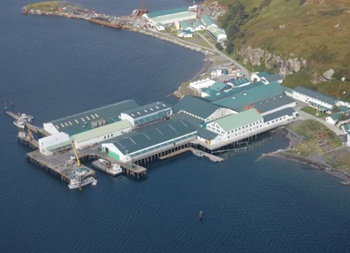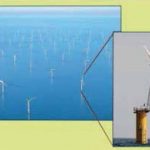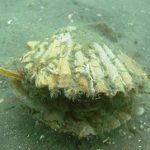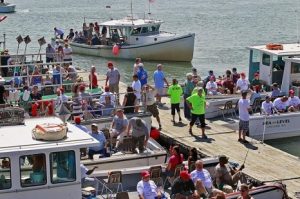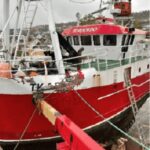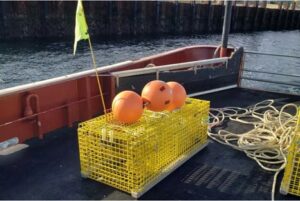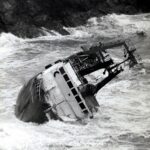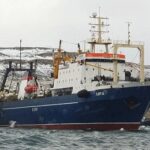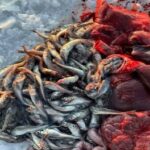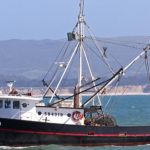Tag Archives: Alaska
Yukon River Panel hears fishing moratorium on Yukon River chinook may be ‘too little, too late’
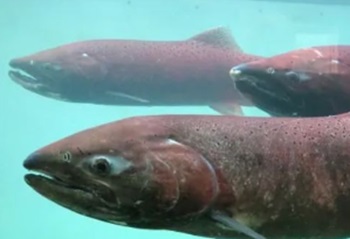 A new international agreement on chinook salmon stoked at times emotional debate at the Yukon River Panel meeting in Anchorage, Alaska, this week, and while many appeared to approve of the pact, others seemed to cast doubts. Duane Aucoin, a member of the Teslin Tlingit Council in the Yukon, said it’s taken the collapse of the chinook population to finally do something, but the natural world doesn’t work that way. “One thing we’re afraid of is, is this too little, too late?” he said. “Western policies, Western politics, Western science is what helped get us into this crisis, into this mess. Traditional knowledge will help get us out.” Photos, more, >>click to read<< 08:02
A new international agreement on chinook salmon stoked at times emotional debate at the Yukon River Panel meeting in Anchorage, Alaska, this week, and while many appeared to approve of the pact, others seemed to cast doubts. Duane Aucoin, a member of the Teslin Tlingit Council in the Yukon, said it’s taken the collapse of the chinook population to finally do something, but the natural world doesn’t work that way. “One thing we’re afraid of is, is this too little, too late?” he said. “Western policies, Western politics, Western science is what helped get us into this crisis, into this mess. Traditional knowledge will help get us out.” Photos, more, >>click to read<< 08:02
Silver Bay Seafoods and Peter Pan Seafoods Announce Valdez Acquisition and 2024 Operational Plan
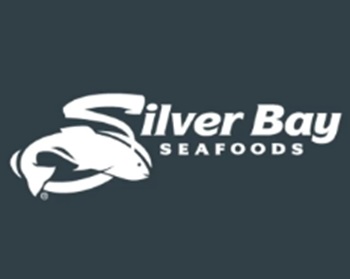 Silver Bay Seafoods and Peter Pan Seafoods announced today that the agreement for Silver Bay to acquire Peter Pan’s Valdez facility has been finalized and that Silver Bay plans to operate the Peter Pan facilities in Port Moller and Dillingham for the 2024 salmon season. Shifting operations of the two facilities to SBS is a component of a larger restructuring, still being finalized, in which Silver Bay would acquire Peter Pan’s processing facilities and support sites after the 2024 salmon season. Peter Pan will remain active in conducting the remaining activities needed to close out 2023 operations, including sales and accounting functions. Both companies are committed to a seamless transition and ensuring minimal disruption to fishermen, communities, and employees. more, >>click to read<< 10:21
Silver Bay Seafoods and Peter Pan Seafoods announced today that the agreement for Silver Bay to acquire Peter Pan’s Valdez facility has been finalized and that Silver Bay plans to operate the Peter Pan facilities in Port Moller and Dillingham for the 2024 salmon season. Shifting operations of the two facilities to SBS is a component of a larger restructuring, still being finalized, in which Silver Bay would acquire Peter Pan’s processing facilities and support sites after the 2024 salmon season. Peter Pan will remain active in conducting the remaining activities needed to close out 2023 operations, including sales and accounting functions. Both companies are committed to a seamless transition and ensuring minimal disruption to fishermen, communities, and employees. more, >>click to read<< 10:21
Western Alaska tribes, outraged by bycatch, turn up the heat on fishery managers and trawlers
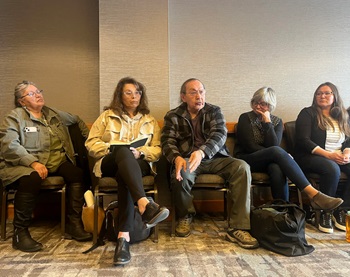 Earlier this spring, Maurice McGinty, a tribal leader from the village of Nulato, pulled out his last mason jar of smoked Yukon king. “We have no more now,” said McGinty, 80. He added: “They are pushing us, and our traditional way of life, into a hole.” Imagine hearing and reading versions of McGinty’s story dozens of times, told by Indigenous people who live along the Yukon and another iconic subsistence river in Southwest Alaska, the Kuskokwim. That’s the reality this week for the policymakers on the North Pacific Fishery Management Council, the federal commission that regulates commercial fishing in the American waters of the Bering Sea. On one side are tribal leaders from the Yukon and Kuskokwim, On the other side are representatives for the trawlers, more, >>click to read<< 13:51
Earlier this spring, Maurice McGinty, a tribal leader from the village of Nulato, pulled out his last mason jar of smoked Yukon king. “We have no more now,” said McGinty, 80. He added: “They are pushing us, and our traditional way of life, into a hole.” Imagine hearing and reading versions of McGinty’s story dozens of times, told by Indigenous people who live along the Yukon and another iconic subsistence river in Southwest Alaska, the Kuskokwim. That’s the reality this week for the policymakers on the North Pacific Fishery Management Council, the federal commission that regulates commercial fishing in the American waters of the Bering Sea. On one side are tribal leaders from the Yukon and Kuskokwim, On the other side are representatives for the trawlers, more, >>click to read<< 13:51
Alaska Longline Fishermen’s Association awarded funding for decarbonization
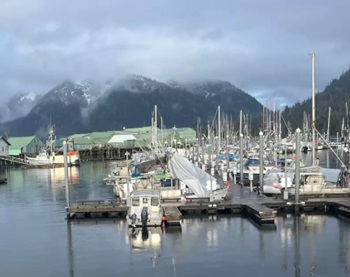 An organization that supports Alaskan small boat fishermen will be getting more than half a million dollars to help them deal with the challenges of climate change, and decrease the fishing industry’s carbon footprint. The money is an appropriations award from U.S. Senator Lisa Murkowski. The funding is going to Alaska Longline Fishermen’s Association, or ALFA. But the group isn’t just made up of longliners. Members include all kinds of commercial fishermen. Linda Behnken is executive director. She says that instead of using the money to upgrade processing plants and boats, they plan to use the money to identify ways they can support the fishing industry. more, >>click to read<< 07:58
An organization that supports Alaskan small boat fishermen will be getting more than half a million dollars to help them deal with the challenges of climate change, and decrease the fishing industry’s carbon footprint. The money is an appropriations award from U.S. Senator Lisa Murkowski. The funding is going to Alaska Longline Fishermen’s Association, or ALFA. But the group isn’t just made up of longliners. Members include all kinds of commercial fishermen. Linda Behnken is executive director. She says that instead of using the money to upgrade processing plants and boats, they plan to use the money to identify ways they can support the fishing industry. more, >>click to read<< 07:58
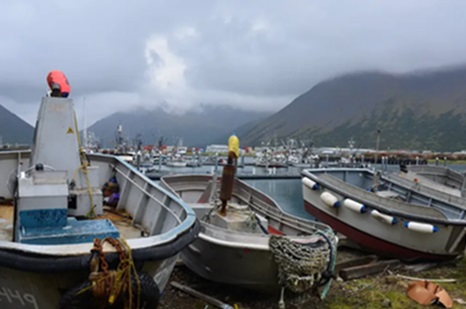
Alaska fishermen and processing plants are in limbo as a state-backed seafood company teeters
The fishing fleet in the Southwest Alaska town of King Cove would have been harvesting Pacific cod this winter. But they couldn’t: Skippers had nowhere to sell their catch. The enormous plant that usually buys and processes their fish never opened for the winter season. The company that runs the plant, Peter Pan Seafoods, is facing six-figure legal claims from fishermen who say they haven’t been paid for catches they delivered months ago. King Cove’s city administrator says the company is behind on its utility payments. And now, residents fear the plant may stay closed through the summer salmon season, which would leave the village with just half of the revenue that normally funds its yearly budget. “We should be fishing right now,” said Ken Mack, a longtime King Cove fisherman. more, >>click to read<< 09:36
Alaska Legislature boosts allowable payments from fund that covers fishers’ crew medical costs
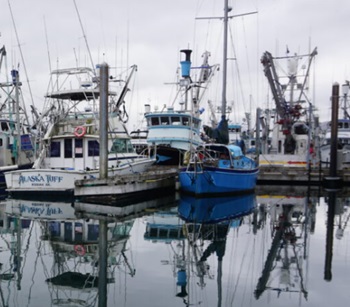 Maximum payouts from a fund that covers medical costs of injured seafood harvesters would be boosted under a bill that won final passage in the Alaska Legislature on Thursday. The measure, Senate Bill 93, would boost allowable payouts from the Fishermen’s Fund to $15,000 per injury or disablement from the current $10,000 maximum. The fund is financed directly by commercial fishers through their license and permit fees. The change in maximum payouts under the fund would incur no new cost to the Alaska Department of Labor and Workforce Development, according to the fiscal notes submitted for lawmakers’ review. more, >>click to read<< 10:13
Maximum payouts from a fund that covers medical costs of injured seafood harvesters would be boosted under a bill that won final passage in the Alaska Legislature on Thursday. The measure, Senate Bill 93, would boost allowable payouts from the Fishermen’s Fund to $15,000 per injury or disablement from the current $10,000 maximum. The fund is financed directly by commercial fishers through their license and permit fees. The change in maximum payouts under the fund would incur no new cost to the Alaska Department of Labor and Workforce Development, according to the fiscal notes submitted for lawmakers’ review. more, >>click to read<< 10:13
Blessing of the fleet asks for good weather, safety, and courage for Chilkat Valley fishermen
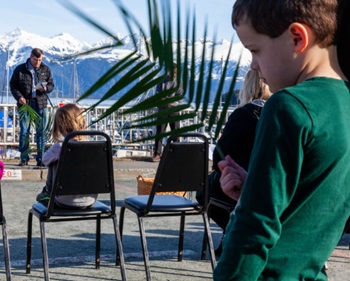 On a bluebird Sunday, a few dozen people gathered at the Small Boat Harbor for the Blessing of the Fleet. There was some confusion among people who attended about when exactly the tradition started in Haines – but many said the weather was the nicest it has been in years on the day of the ceremony. The annual gathering is sponsored by the Haines Ministerial Association and brings a multi-denominational crowd. “One of my favorite things about it,” said Haines Presbyterian Church Pastor Dana Perreard, “[is] you get folks who aren’t regular churchgoers because they want to honor their family members and remember them.” photos, more, >>click to read<< 07:09
On a bluebird Sunday, a few dozen people gathered at the Small Boat Harbor for the Blessing of the Fleet. There was some confusion among people who attended about when exactly the tradition started in Haines – but many said the weather was the nicest it has been in years on the day of the ceremony. The annual gathering is sponsored by the Haines Ministerial Association and brings a multi-denominational crowd. “One of my favorite things about it,” said Haines Presbyterian Church Pastor Dana Perreard, “[is] you get folks who aren’t regular churchgoers because they want to honor their family members and remember them.” photos, more, >>click to read<< 07:09

Graves and Peltola Urge Biden to Immediately Halt Unsafe Shrimp Imports
U.S. Congressman Garret Graves (South Louisiana) and Congresswoman Mary Sattler Peltola (Alaska) sent a letter to President Biden urging him to immediately halt shrimp imports into the United States from India, following concerning reports of severe food and safety issues and labor violations in Indian shrimp processing facilities. The reports highlight that shrimp imported from India are farmed and they regularly do not meet domestic health standards; the suppliers themselves know this to be true, evidenced by their tactics to evade detection at American ports. Graves and Peltola noted that there is already high-quality, healthy shrimp caught in America that is being pushed out of the market by foreign shrimp sold at artificially low prices and unsafe for consumption. more, >>click to read<< 12:49
Balloon debris recovered by Alaskan fishermen was ‘in the ocean for well over a year,’ Pentagon says
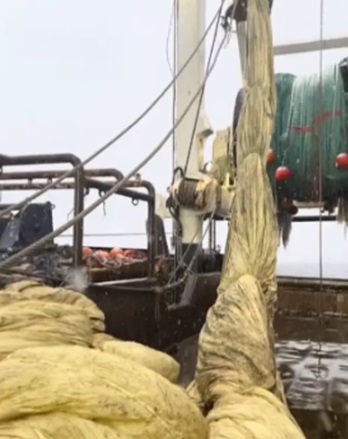 Balloon debris recovered off the coast of Alaska earlier this month appears to have been in the water for “well over a year,” a Pentagon official said Friday. The remnants of the object were discovered by commercial fishermen, who notified the FBI of their find before bringing it back to shore. “Initial inspection of the balloon debris indicates that the material has been in the ocean for well over a year,” a spokesperson for the Department of Defense told reporters. “Some material has been transferred to US government facilities for further examination and analysis,” the official added. Photos, links, more, >>click to read<< 06:57
Balloon debris recovered off the coast of Alaska earlier this month appears to have been in the water for “well over a year,” a Pentagon official said Friday. The remnants of the object were discovered by commercial fishermen, who notified the FBI of their find before bringing it back to shore. “Initial inspection of the balloon debris indicates that the material has been in the ocean for well over a year,” a spokesperson for the Department of Defense told reporters. “Some material has been transferred to US government facilities for further examination and analysis,” the official added. Photos, links, more, >>click to read<< 06:57
Federal judge to rule on reduction in trawler halibut bycatch
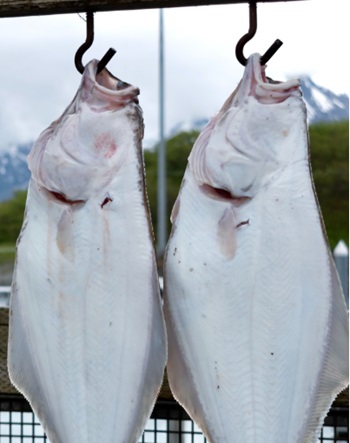 A U.S. District court judge is expected to issue a decision this spring on a lawsuit filed by the Groundfish Forum challenging a National Marine Fisheries Service (NMFS) decision setting abundance-based limits on halibut bycatch in the Amendment 80 Bering Sea trawl fishery. The Groundfish Forum, based in Seattle, filed its complaint with the U.S. District Court in Anchorage on Dec. 19, challenging the new halibut bycatch rules that were first adopted by the North Pacific Fishery Management Council and subsequently approved by NMFS. On Feb. 29, the Halibut Defense Alliance intervened on the side of NMFS over concerns about the number of halibut taken as bycatch by Amendment 80 vessels in the Bering Sea, saying the limits on halibut bycatch would ensure more equitable access to halibut fisheries. The alliance is a broad coalition of commercial harvesters, charter operators, processors and community organizations representing halibut-dependent communities in Alaska and the Pacific Northwest. more, >>click to read<< 19:52
A U.S. District court judge is expected to issue a decision this spring on a lawsuit filed by the Groundfish Forum challenging a National Marine Fisheries Service (NMFS) decision setting abundance-based limits on halibut bycatch in the Amendment 80 Bering Sea trawl fishery. The Groundfish Forum, based in Seattle, filed its complaint with the U.S. District Court in Anchorage on Dec. 19, challenging the new halibut bycatch rules that were first adopted by the North Pacific Fishery Management Council and subsequently approved by NMFS. On Feb. 29, the Halibut Defense Alliance intervened on the side of NMFS over concerns about the number of halibut taken as bycatch by Amendment 80 vessels in the Bering Sea, saying the limits on halibut bycatch would ensure more equitable access to halibut fisheries. The alliance is a broad coalition of commercial harvesters, charter operators, processors and community organizations representing halibut-dependent communities in Alaska and the Pacific Northwest. more, >>click to read<< 19:52
BOF declines to lower hatchery production levels
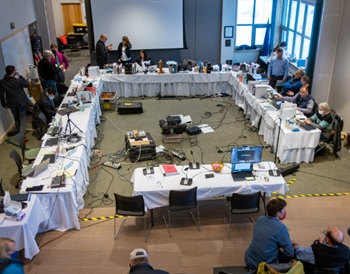 A proposal to lower hatchery production to its 2000 level went down in defeat at the Alaska Board of Fisheries meeting on Monday, March 4 in a 1-6 vote, after the majority of the board concluded that hatchery raised salmon were not causing undue harm to wild stocks. The decision came after extensive testimony, mostly from fishing industry activists opposed to Proposal 43, which was offered by the Fairbanks Advisory Committee to the Board of Fisheries. The board also took testimony at its Lower Cook Inlet meeting in Homer Nov. 26 through Dec. 1, but postponed any action until its Upper Cook Inlet meeting, from Feb. 23 through March 5 in Anchorage. more, >>click to read<< 13:09
A proposal to lower hatchery production to its 2000 level went down in defeat at the Alaska Board of Fisheries meeting on Monday, March 4 in a 1-6 vote, after the majority of the board concluded that hatchery raised salmon were not causing undue harm to wild stocks. The decision came after extensive testimony, mostly from fishing industry activists opposed to Proposal 43, which was offered by the Fairbanks Advisory Committee to the Board of Fisheries. The board also took testimony at its Lower Cook Inlet meeting in Homer Nov. 26 through Dec. 1, but postponed any action until its Upper Cook Inlet meeting, from Feb. 23 through March 5 in Anchorage. more, >>click to read<< 13:09
Board of Fisheries passes new Kenai king salmon plan
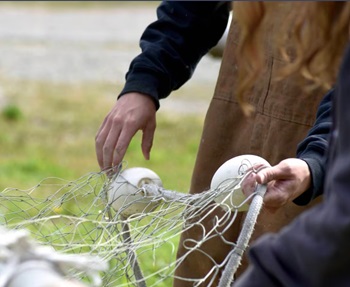 New management policies for Kenai River king salmon mean that sockeye bag limits in the river are up, and commercial setnet fishing is likely to be closed for the foreseeable future. Kenai River late run king salmon are now officially designated a stock of concern, which means a host of changes in the management plan. The Alaska Board of Fisheries finalized the designation at its meeting in Anchorage on March 1, and as part of it, revised the management plan for the fishery to help conserve more of the fish. At its October 2023 meeting, the board reviewed the Stock of Concern designation for the late run, which covers July and August in the Kenai River. At its March meeting, the board decided how to change the management plan to help rebuild the run over time. more, >>click to read<< 14:50
New management policies for Kenai River king salmon mean that sockeye bag limits in the river are up, and commercial setnet fishing is likely to be closed for the foreseeable future. Kenai River late run king salmon are now officially designated a stock of concern, which means a host of changes in the management plan. The Alaska Board of Fisheries finalized the designation at its meeting in Anchorage on March 1, and as part of it, revised the management plan for the fishery to help conserve more of the fish. At its October 2023 meeting, the board reviewed the Stock of Concern designation for the late run, which covers July and August in the Kenai River. At its March meeting, the board decided how to change the management plan to help rebuild the run over time. more, >>click to read<< 14:50
The Complete Guide to Dungeness Crab, where to source, how to break it down, and what utensils you’ll need
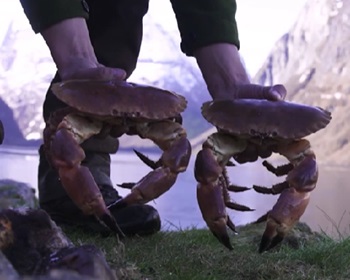 Dungeness are cold-water crabs, 7 to 9 inches in width, and 1 1/2 to 2 pounds in weight, found off the coasts of Northern California, Oregon, Washington, and Alaska, with the San Francisco Bay Area being a singular hotbed for Dungeness lovers, writes F&W assistant food editor Andee Gosnell. They’re prized for their flaky, sweet, juicy meat. Historically, Dungeness crab season started at the beginning of November and lasted through June. In recent years, environmental stressors and the conservation policies to address them have led to a delayed start and early end to the season. The 2023 season is expected to start in mid-December. If you can’t find Dungeness crab, substitute lump crabmeat. Video, photos, more, >>click to read<< 09:44
Dungeness are cold-water crabs, 7 to 9 inches in width, and 1 1/2 to 2 pounds in weight, found off the coasts of Northern California, Oregon, Washington, and Alaska, with the San Francisco Bay Area being a singular hotbed for Dungeness lovers, writes F&W assistant food editor Andee Gosnell. They’re prized for their flaky, sweet, juicy meat. Historically, Dungeness crab season started at the beginning of November and lasted through June. In recent years, environmental stressors and the conservation policies to address them have led to a delayed start and early end to the season. The 2023 season is expected to start in mid-December. If you can’t find Dungeness crab, substitute lump crabmeat. Video, photos, more, >>click to read<< 09:44
Leading Alaska legislators propose task force to help rescue a seafood industry ‘in a tailspin’
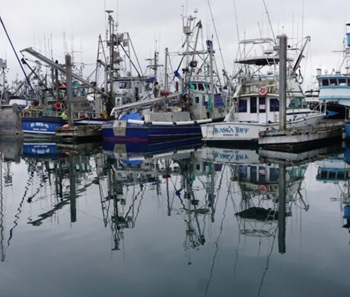 Russian fish flooding global markets and other economic forces beyond the state’s border have created dire conditions for Alaska’s seafood industry. Now key legislators are seeking to establish a task force to come up with some responses to the low prices, lost market share, lost jobs and lost income being suffered by fishers, fishing companies and fishing-related communities. The measure, Senate Concurrent Resolution 10, was introduced on March 1 and is sponsored by the Senate Finance Committee. “Alaska’s seafood industry is in a tailspin from facing unprecedented challenges,” said the measure’s sponsor statement issued by the committee’s co-chairs: Sen. Bert Stedman, R-Sitka; Sen. Lyman Hoffman, D-Bethel; and Sen. Donny Olson, D-Golovin. The measure is also being promoted by Senate President Gary Stevens, R-Kodiak. more, >>click to read<< 09:55
Russian fish flooding global markets and other economic forces beyond the state’s border have created dire conditions for Alaska’s seafood industry. Now key legislators are seeking to establish a task force to come up with some responses to the low prices, lost market share, lost jobs and lost income being suffered by fishers, fishing companies and fishing-related communities. The measure, Senate Concurrent Resolution 10, was introduced on March 1 and is sponsored by the Senate Finance Committee. “Alaska’s seafood industry is in a tailspin from facing unprecedented challenges,” said the measure’s sponsor statement issued by the committee’s co-chairs: Sen. Bert Stedman, R-Sitka; Sen. Lyman Hoffman, D-Bethel; and Sen. Donny Olson, D-Golovin. The measure is also being promoted by Senate President Gary Stevens, R-Kodiak. more, >>click to read<< 09:55
Regional council says it won’t tighten fishing regulations in Bristol Bay red king crab savings area
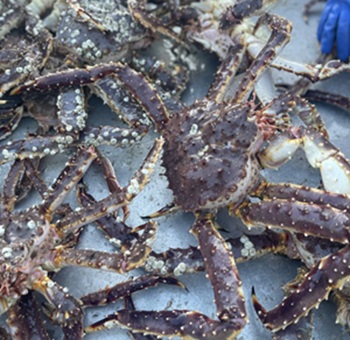 The North Pacific Fishery Management Council will not move forward with a request to close the Bristol Bay red king crab savings area to all commercial fishing. At its February meeting, the regulatory council looked at the effectiveness of closing the 4,000-square-nautical-mile section of the eastern Bering Sea to commercial trawl, pot and longline fishing, but decided not to tighten regulations in the area. The savings box was established in 1996 as a haven for the massive crab species. It is already permanently closed to bottom trawling, but it remains open to midwater, or pelagic trawlers, pot fishing and longlining. Non-pelagic, known as bottom trawling, is allowed in a small section within the savings area — known as the savings subarea — when crabbers are harvesting the species. The council also evaluated a pot gear closure of a large section in the eastern portion of Bristol Bay, known as Area 512, to address drops in the Bristol Bay red king crab stock. All trawling is already prohibited in that area. more, >>click to read<< 12:38
The North Pacific Fishery Management Council will not move forward with a request to close the Bristol Bay red king crab savings area to all commercial fishing. At its February meeting, the regulatory council looked at the effectiveness of closing the 4,000-square-nautical-mile section of the eastern Bering Sea to commercial trawl, pot and longline fishing, but decided not to tighten regulations in the area. The savings box was established in 1996 as a haven for the massive crab species. It is already permanently closed to bottom trawling, but it remains open to midwater, or pelagic trawlers, pot fishing and longlining. Non-pelagic, known as bottom trawling, is allowed in a small section within the savings area — known as the savings subarea — when crabbers are harvesting the species. The council also evaluated a pot gear closure of a large section in the eastern portion of Bristol Bay, known as Area 512, to address drops in the Bristol Bay red king crab stock. All trawling is already prohibited in that area. more, >>click to read<< 12:38
NOAA postpones controversial bottom trawling experiment in Alaska’s Northern Bering Sea
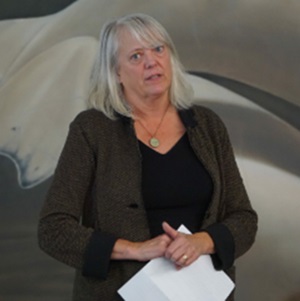 The project, called the Northern Bering Sea Effects of Trawling Study, or NETS, has been envisioned as an experiment to examine impacts of commercial bottom trawling in an area of the Bering Sea where it is currently banned. Bottom trawling is a method of fish harvesting that uses nets to sweep the seafloor. While it is prohibited in the Northern Bering Sea, the shift in fish populations caused by climate change may build pressure for bottom trawling there in the future, according to the study plan. The study has been designed as a multiyear project to start as early as this August. It was to be conducted by the Alaska Fisheries Science Center, a branch of the National Oceanic and Atmospheric Administration’s Fisheries Service, also known as the National Marine Fisheries Service. News of the decision came in an emailed letter from Janet Coit, director of NOAA Fisheries, to tribal organizations that had expressed opposition to the project. more, >>click to read<< 09:52
The project, called the Northern Bering Sea Effects of Trawling Study, or NETS, has been envisioned as an experiment to examine impacts of commercial bottom trawling in an area of the Bering Sea where it is currently banned. Bottom trawling is a method of fish harvesting that uses nets to sweep the seafloor. While it is prohibited in the Northern Bering Sea, the shift in fish populations caused by climate change may build pressure for bottom trawling there in the future, according to the study plan. The study has been designed as a multiyear project to start as early as this August. It was to be conducted by the Alaska Fisheries Science Center, a branch of the National Oceanic and Atmospheric Administration’s Fisheries Service, also known as the National Marine Fisheries Service. News of the decision came in an emailed letter from Janet Coit, director of NOAA Fisheries, to tribal organizations that had expressed opposition to the project. more, >>click to read<< 09:52
Commercial Fishermen in Alaska Find Suspected Spy Balloon, FBI Investigation Pending
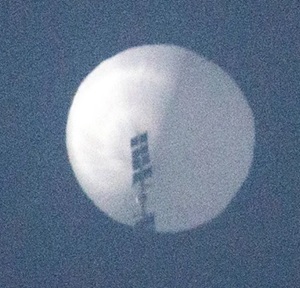 Commercial fishermen off the coast of Alaska have stumbled upon what could be a significant find—a suspected spy balloon, sparking immediate interest from U.S. officials. The object, believed to resemble those used in foreign surveillance activities, is now en route to the shore, escorted by the fishermen who discovered it. This incident has generated considerable attention, with the FBI preparing to conduct a thorough investigation upon its arrival. The unexpected discovery occurred when the fishermen noticed an unusual object floating off the coast. Initial photographs sent to local law enforcement caught the eye of federal officials, prompting an urgent request for the object to be brought to land. more, >>click to read<< 18:18
Commercial fishermen off the coast of Alaska have stumbled upon what could be a significant find—a suspected spy balloon, sparking immediate interest from U.S. officials. The object, believed to resemble those used in foreign surveillance activities, is now en route to the shore, escorted by the fishermen who discovered it. This incident has generated considerable attention, with the FBI preparing to conduct a thorough investigation upon its arrival. The unexpected discovery occurred when the fishermen noticed an unusual object floating off the coast. Initial photographs sent to local law enforcement caught the eye of federal officials, prompting an urgent request for the object to be brought to land. more, >>click to read<< 18:18
Bailouts
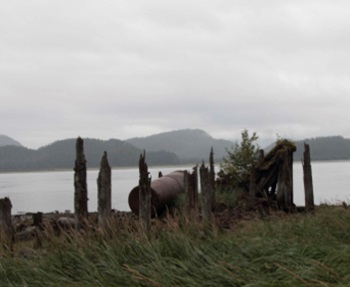 The Alaska Congressional delegation is singing praises for a new $100 million bailout of the state’s floundering commercial salmon processing business. In a joint statement from the office of Sen. Lisa Murkowski, the trio applauded the U.S. Department of Agriculture (USDA) move with the state’s senior Republican lawmaker tried to spin it as a new poverty program to provide “almost $100 million of Alaskan seafood for people experiencing food insecurity. “This purchase won’t just bolster Alaska’s seafood industry and support our coastal communities,” Murkowski was quoted as saying, “but will help bring the highest-quality and healthiest seafood products in the world to families in need. I am grateful for the USDA’s investment in our fishermen and the health of Americans.” There has been no actual “investment in our fishermen,” presuming she is talking about Alaska fishermen. But they may benefit from a deal that helps processors clean out some of their inventory before the upcoming fishing season. More, >>click to read<< 13:06
The Alaska Congressional delegation is singing praises for a new $100 million bailout of the state’s floundering commercial salmon processing business. In a joint statement from the office of Sen. Lisa Murkowski, the trio applauded the U.S. Department of Agriculture (USDA) move with the state’s senior Republican lawmaker tried to spin it as a new poverty program to provide “almost $100 million of Alaskan seafood for people experiencing food insecurity. “This purchase won’t just bolster Alaska’s seafood industry and support our coastal communities,” Murkowski was quoted as saying, “but will help bring the highest-quality and healthiest seafood products in the world to families in need. I am grateful for the USDA’s investment in our fishermen and the health of Americans.” There has been no actual “investment in our fishermen,” presuming she is talking about Alaska fishermen. But they may benefit from a deal that helps processors clean out some of their inventory before the upcoming fishing season. More, >>click to read<< 13:06
Senate committee hears setnet buyback bill
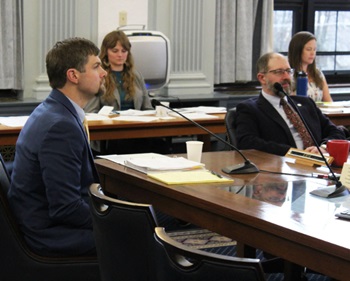 A Senate committee on Monday considered legislation that would give Cook Inlet’s east side setnet fishermen the opportunity to retire their fishing permits through a volunteer, lottery-style buyback program. The bill, which still needs to pass in both the Alaska House and Senate in the next 12 weeks, would create the program, but not fund the buyouts. That money would need to come from outside groups. The bill, S.B. 82, is named the East Side of Cook Inlet Set Net Fleet Reduction Act and is sponsored by Sen. Jesse Bjorkman, R-Nikiski. The bill aims to make Cook Inlet’s east side setnet fishery more economically viable and to reduce tensions between fishery user groups by reducing the amount of fishing gear in the water and giving permit holders an opportunity to exit the fishery. more, >>click to read<< 10:24
A Senate committee on Monday considered legislation that would give Cook Inlet’s east side setnet fishermen the opportunity to retire their fishing permits through a volunteer, lottery-style buyback program. The bill, which still needs to pass in both the Alaska House and Senate in the next 12 weeks, would create the program, but not fund the buyouts. That money would need to come from outside groups. The bill, S.B. 82, is named the East Side of Cook Inlet Set Net Fleet Reduction Act and is sponsored by Sen. Jesse Bjorkman, R-Nikiski. The bill aims to make Cook Inlet’s east side setnet fishery more economically viable and to reduce tensions between fishery user groups by reducing the amount of fishing gear in the water and giving permit holders an opportunity to exit the fishery. more, >>click to read<< 10:24
In crabbers’ turbulent moment, Edmonds seafood processor ‘saved our season’
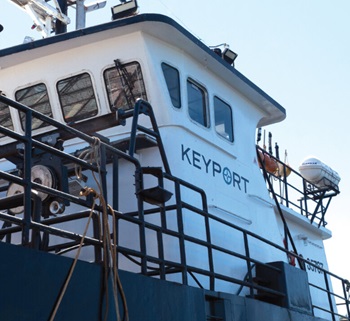 When a seafood processing plant in Alaska shut down in the middle of crabbing season, fishermen found themselves in a pinch. Under the state’s quota system, harvesters can only catch a set amount of crab each year. And they must deliver 90% of their catch to a processor with a corresponding quota With the Peter Pan Seafood facility closed this winter in King Cove, there was no one to process their catch. That’s when Keyport, an Edmonds-based company, stepped up to the plate. “When Peter Pan announced they were shutting down, a lot of fishermen came to us asking for help,” Keyport CEO Mark Pedersen said. more, >>click to read<< 16:18
When a seafood processing plant in Alaska shut down in the middle of crabbing season, fishermen found themselves in a pinch. Under the state’s quota system, harvesters can only catch a set amount of crab each year. And they must deliver 90% of their catch to a processor with a corresponding quota With the Peter Pan Seafood facility closed this winter in King Cove, there was no one to process their catch. That’s when Keyport, an Edmonds-based company, stepped up to the plate. “When Peter Pan announced they were shutting down, a lot of fishermen came to us asking for help,” Keyport CEO Mark Pedersen said. more, >>click to read<< 16:18
Retired Commercial Fisherman Darryl Olson of Petersburg, Alaska, has passed away
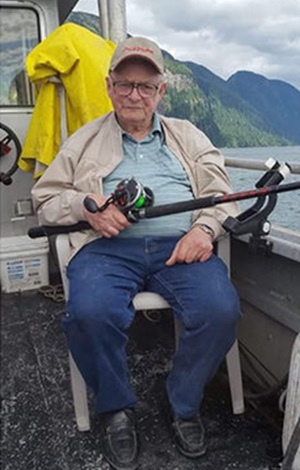 Darryl Olson was born on January 18, 1942, in Petersburg, Alaska, to Dagney Marie (Loseth) Olson and Paul “Bud” Ivar Olson. Darryl grew up fishing with his father, Paul. He attended Petersburg High School and after graduation he married his dream girl, Mary Ann Hasbrouck, on March 10, 1962. They were happily married for fifty-nine years, when she preceded him in death in 2021. He worked for J&H Logging as a choker setter until he started his career as a commercial fisherman. After leasing two boats, Darryl bought the F/V Miss Helen. In 1972, Darryl and Mary Ann began building their Petersburg home. That same year, Darryl purchased his dreamboat, the F/V Mary Ann, with the help of Robert Thorstenson and Tommy Thompson, of Petersburg Fisheries, Inc. more, >>click to read<< 10:45
Darryl Olson was born on January 18, 1942, in Petersburg, Alaska, to Dagney Marie (Loseth) Olson and Paul “Bud” Ivar Olson. Darryl grew up fishing with his father, Paul. He attended Petersburg High School and after graduation he married his dream girl, Mary Ann Hasbrouck, on March 10, 1962. They were happily married for fifty-nine years, when she preceded him in death in 2021. He worked for J&H Logging as a choker setter until he started his career as a commercial fisherman. After leasing two boats, Darryl bought the F/V Miss Helen. In 1972, Darryl and Mary Ann began building their Petersburg home. That same year, Darryl purchased his dreamboat, the F/V Mary Ann, with the help of Robert Thorstenson and Tommy Thompson, of Petersburg Fisheries, Inc. more, >>click to read<< 10:45
NTSB Report: Flooding and Non-Operational Alarms Led to Fishing Vessel Loss
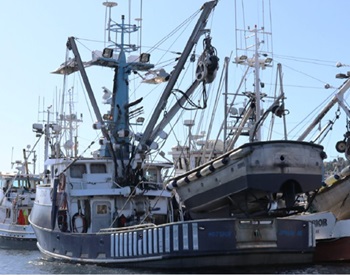 The National Transportation Safety Board (NTSB) has concluded that the likely cause of the capsizing and sinking of the fishing vessel Hotspur near Nunez Rocks, Alaska, was flooding into below-deck compartments. On August 2, 2022, while transiting through the Dixon Entrance, the Hotspur began to list to port. Realizing the severity of the situation, the captain and four crewmembers quickly abandoned ship, escaping to a life raft. They were subsequently rescued by nearby vessels. Within 20 minutes of the crew first noticing the list, the Hotspur had capsized and sunk. more, >>click to read<< 06:32
The National Transportation Safety Board (NTSB) has concluded that the likely cause of the capsizing and sinking of the fishing vessel Hotspur near Nunez Rocks, Alaska, was flooding into below-deck compartments. On August 2, 2022, while transiting through the Dixon Entrance, the Hotspur began to list to port. Realizing the severity of the situation, the captain and four crewmembers quickly abandoned ship, escaping to a life raft. They were subsequently rescued by nearby vessels. Within 20 minutes of the crew first noticing the list, the Hotspur had capsized and sunk. more, >>click to read<< 06:32
Eric’s Heroes: The 50-year journey of fisherman Pete Knutson
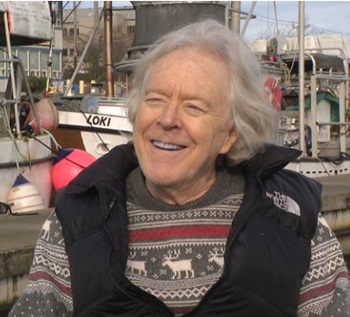 A fisherman with long, gray hair looks out at this beautiful place and takes a sip from his coffee mug. The fisherman is Pete Knutson. The place is Fisherman’s Terminal. Each has left their mark on the other. Don’t be fooled by how gorgeous it is. Fisherman’s Terminal, plopped right in the middle of a major metropolitan city, is a place for men and women who understand work. People who fish for a living. “It always felt RIGHT,” he says. “It always felt like a place that I was comfortable. I like the people. I’ve always liked the people in the fishing. They’re really direct, you know? It’s honest work.” Pete has been a fisherman for 50 years. He’s gone to Alaska to ply his trade, four or five months every summer, for half a century. Video, 17 photos, more, >>click to read<< 10:46
A fisherman with long, gray hair looks out at this beautiful place and takes a sip from his coffee mug. The fisherman is Pete Knutson. The place is Fisherman’s Terminal. Each has left their mark on the other. Don’t be fooled by how gorgeous it is. Fisherman’s Terminal, plopped right in the middle of a major metropolitan city, is a place for men and women who understand work. People who fish for a living. “It always felt RIGHT,” he says. “It always felt like a place that I was comfortable. I like the people. I’ve always liked the people in the fishing. They’re really direct, you know? It’s honest work.” Pete has been a fisherman for 50 years. He’s gone to Alaska to ply his trade, four or five months every summer, for half a century. Video, 17 photos, more, >>click to read<< 10:46
Alaska tribes, green group take aim at planned bottom-trawling study in northern Bering Sea
 Three tribal governments and an environmental organization on Thursday served notice to federal agencies that they are planning a lawsuit to block a fishing experiment along the seafloor in the northern Bering Sea. The practice of bottom trawling, sweeping a net to catch fish on or near the seabed, is currently prohibited in the Northern Bering Sea, which is abbreviated in legal documents as NBS. But the National Oceanic and Atmospheric Administration’s National Marine Fisheries Service is planning to deploy some commercial trawling gear in selected spots over the coming summers to see what impacts, if any, result to the habitat and the marine life dependent on it. The research project is called the Northern Bering Sea Effects of Trawling Study, or NBET. It is focused on specific areas north and south of St. Lawrence Island and would potentially simulate effects of commercial harvests. more, >>click to read<< 08:10
Three tribal governments and an environmental organization on Thursday served notice to federal agencies that they are planning a lawsuit to block a fishing experiment along the seafloor in the northern Bering Sea. The practice of bottom trawling, sweeping a net to catch fish on or near the seabed, is currently prohibited in the Northern Bering Sea, which is abbreviated in legal documents as NBS. But the National Oceanic and Atmospheric Administration’s National Marine Fisheries Service is planning to deploy some commercial trawling gear in selected spots over the coming summers to see what impacts, if any, result to the habitat and the marine life dependent on it. The research project is called the Northern Bering Sea Effects of Trawling Study, or NBET. It is focused on specific areas north and south of St. Lawrence Island and would potentially simulate effects of commercial harvests. more, >>click to read<< 08:10
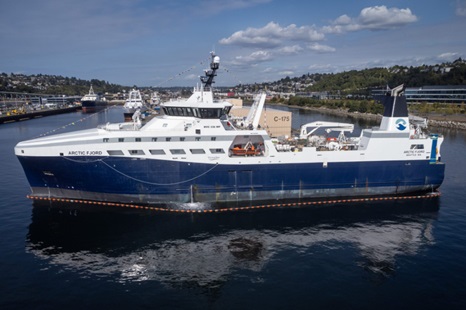
Vessel Review: F/V Arctic Fjord – Alaska Pollock Trawler to be Deployed in Bering Sea
Seattle-based seafood company the Arctic Storm Management Group has taken delivery of a new trawler-processor optimised for catching Alaska pollock in the Bering Sea. The newer F/V Arctic Fjord has a length of 324 feet (99 metres), a beam of 68.9 feet (21 metres), a draught of 28.5 feet (8.7 metres), space for 152 crewmembers and processing personnel, and a wave-piercing bow that reduces fuel consumption and slamming in rough seas. Approximately 4,000 cubic metres of fish products including fish meal and fish oil can be stored in the holds. Pkotos, specs, more, >>click to read<< 14:25
Pair of bills makes electronic monitoring of state-regulated fisheries a possibility
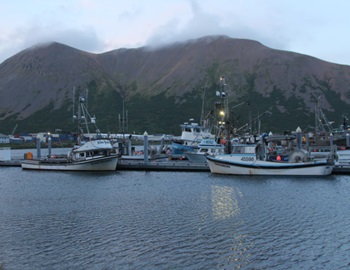 Nels Evens is a longliner and gillnetter, and the executive director of the Petersburg Vessel Owners Association. He says he’s not sure what the bills’ aim is. “Because it is so broad, and we don’t understand what it’s really trying to get at, we’re not supportive of it,” he said. The pair of bills – Senate Bill 209 and House Bill 294 – stem from a discussion at last year’s Board of Fisheries meeting. The Board was trying to figure out how to enforce regulations that require Area M fishermen to keep chum salmon, instead of tossing them back in favor of much more valuable King salmon. Area M is along the Alaska Peninsula and Eastern Aleutians. It intercepts some chum salmon bound for western Alaska. more, >>click to read<< 08:53
Nels Evens is a longliner and gillnetter, and the executive director of the Petersburg Vessel Owners Association. He says he’s not sure what the bills’ aim is. “Because it is so broad, and we don’t understand what it’s really trying to get at, we’re not supportive of it,” he said. The pair of bills – Senate Bill 209 and House Bill 294 – stem from a discussion at last year’s Board of Fisheries meeting. The Board was trying to figure out how to enforce regulations that require Area M fishermen to keep chum salmon, instead of tossing them back in favor of much more valuable King salmon. Area M is along the Alaska Peninsula and Eastern Aleutians. It intercepts some chum salmon bound for western Alaska. more, >>click to read<< 08:53
Unalaska pushes back against proposed bycatch restrictions on pollock fishery
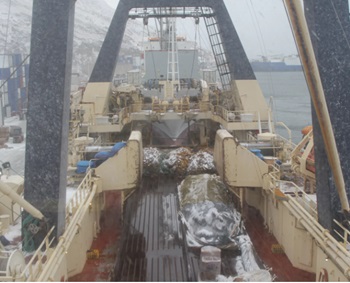 Unalaska leaders are pushing back against a proposed petition to eliminate Chinook bycatch in the Bering Sea Alaska pollock fishery. Nearly 100 tribes and communities in western Alaska, including the Association of Village Council Presidents, signed an emergency petition that would set a zero-bycatch limit on Chinook salmon in the pollock trawl fishery for 180 days. Unalaska Mayor Vince Tutiakoff Sr. said in a letter that a zero-cap would “effectively shut down the entire pollock fishery of the Bering Sea,” and create a “dire situation” for Unalaska. links, more, ??click to read<< 11:19
Unalaska leaders are pushing back against a proposed petition to eliminate Chinook bycatch in the Bering Sea Alaska pollock fishery. Nearly 100 tribes and communities in western Alaska, including the Association of Village Council Presidents, signed an emergency petition that would set a zero-bycatch limit on Chinook salmon in the pollock trawl fishery for 180 days. Unalaska Mayor Vince Tutiakoff Sr. said in a letter that a zero-cap would “effectively shut down the entire pollock fishery of the Bering Sea,” and create a “dire situation” for Unalaska. links, more, ??click to read<< 11:19
No-farm farm
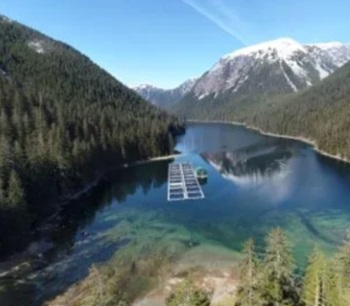 In one of the stranger twists in the strange world of global salmon marketing, Alaska’s non-farm fish farmers played a role in convincing the Canadian city of Ottawa to order removal of billboards protesting farmed salmon. The reason? “False advertising.” And now the same environmental group involved in Ottawa – Wild First – is under fire in British Columbia for running radio advertisements claiming salmon farms have pushed wild Pacific salmon to “the brink of extinction,” according to the news website Business in Vancouver (BIV). That claim is about as far from the truth as one can get. Salmon in the Pacific are today at numbers never seen in recorded history, but most of them are pink salmon. Some scientists contend this explosion of pinks due in part to the free-range fish farming efforts of hatchery operators in Alaska and Russia has reached the point where it is wreaking havoc with the entire North Pacific ecosystem. more, >>click to read<< 07:50
In one of the stranger twists in the strange world of global salmon marketing, Alaska’s non-farm fish farmers played a role in convincing the Canadian city of Ottawa to order removal of billboards protesting farmed salmon. The reason? “False advertising.” And now the same environmental group involved in Ottawa – Wild First – is under fire in British Columbia for running radio advertisements claiming salmon farms have pushed wild Pacific salmon to “the brink of extinction,” according to the news website Business in Vancouver (BIV). That claim is about as far from the truth as one can get. Salmon in the Pacific are today at numbers never seen in recorded history, but most of them are pink salmon. Some scientists contend this explosion of pinks due in part to the free-range fish farming efforts of hatchery operators in Alaska and Russia has reached the point where it is wreaking havoc with the entire North Pacific ecosystem. more, >>click to read<< 07:50







